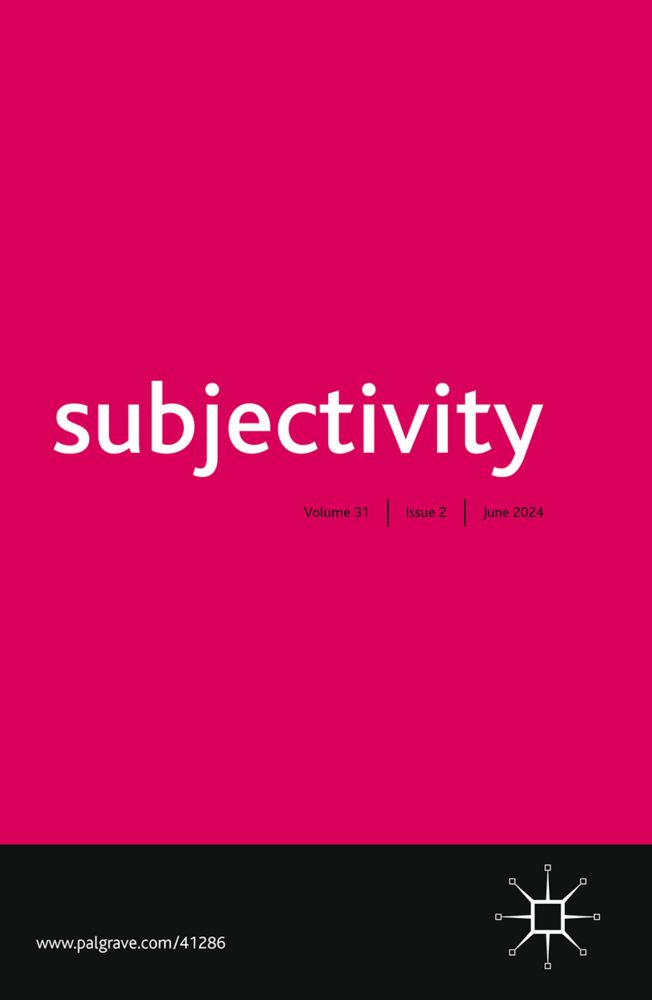https://www.palgrave.com/gp/journal/41286
link.springer.com/article/10.1...

link.springer.com/article/10.1...
link.springer.com/article/10.1...

link.springer.com/article/10.1...
link.springer.com/article/10.1...

link.springer.com/article/10.1...
Drawing on #Agamben’s concepts of #BareLife and the #StateOfException
link.springer.com/article/10.1...

Drawing on #Agamben’s concepts of #BareLife and the #StateOfException
link.springer.com/article/10.1...
link.springer.com/article/10.1...

link.springer.com/article/10.1...
link.springer.com/article/10.1...

link.springer.com/article/10.1...
link.springer.com/article/10.1...

link.springer.com/article/10.1...
link.springer.com/article/10.1...

link.springer.com/article/10.1...
link.springer.com/article/10.1...

link.springer.com/article/10.1...
link.springer.com/article/10.1...

link.springer.com/article/10.1...
link.springer.com/epdf/10.1057...

link.springer.com/epdf/10.1057...
@tynedaile.bsky.social,
#TraumaAndClass by Diane Reay, and Tara Page on "Making Ethics"
link.springer.com/journal/4128...

@tynedaile.bsky.social,
#TraumaAndClass by Diane Reay, and Tara Page on "Making Ethics"
link.springer.com/journal/4128...

#OnlineFirst #OpenAccess
link.springer.com/article/10.1...
#OnlineFirst #OpenAccess
link.springer.com/article/10.1...






link.springer.com/article/10.1...

link.springer.com/article/10.1...
link.springer.com/article/10.1...

link.springer.com/article/10.1...
link.springer.com/article/10.1...

link.springer.com/article/10.1...
link.springer.com/article/10.1...

link.springer.com/article/10.1...
link.springer.com/article/10.1...

link.springer.com/article/10.1...

